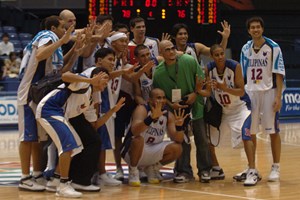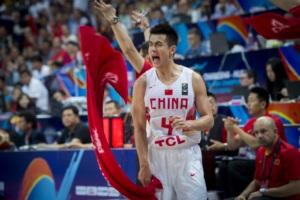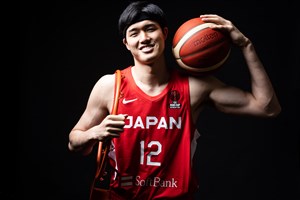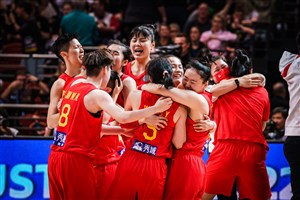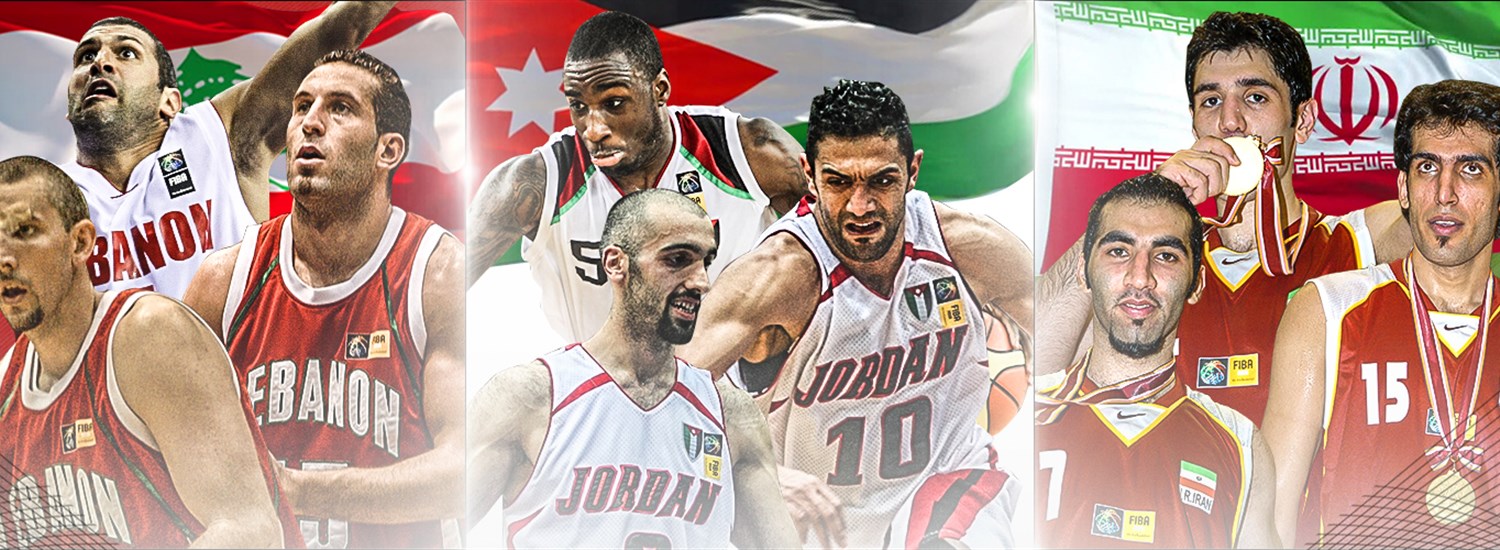
Tale of three FIBA Asia Cup Final debuts
ASIA - Prior to entering the 21st century, East Asia had dominated the FIBA Asia Cup. Ever since the introduction of a play-off format that would end in a championship game, the two teams in contention were either China, Korea, DPR Korea, or Japan.
The signals of an upcoming change were there as Iran and Saudi Arabia started making their way into the Semi-Finals. When Lebanon finally made it to the Final in 2001, it was finally official: The wild west was awake.
Including that year, a total of three teams from the west side of Asia made it to the continental cup final. Here, we compare each of the three teams in the run to their FIBA Asia Cup title game debuts.
The Teams
Lebanon - Reached Final for the first time in Asia Cup 2001
Iran - Reached Final for the first time in Asia Cup 2007
Jordan - Reached Final for the first time in Asia Cup 2011
The Build-Up
Lebanon had played in only one FIBA Asia Cup in 1999 prior to their run to the 2001 championship game. They did fairly well with a win over Korea in the Group Phase but ultimately ended up in 7th place.
Iran had a longer history than the abovementioned teams in the competition than Lebanon with 11 appearances before making their way to their first Final in 2007. They had been solid performers before 2007, but only had one Semi-Final appearance on their résumé.
The build-up towards Jordan’s appearance in 2011 was more gradual. Since FIBAAsia Cup 2003, they continued to improve their results from 10th place (2003) to 7th place (2005) to 5th place (2007) to 3rd place (2009).
The Stars
Lebanon
Fadi El Khatib might have been the biggest star of the entire Asia Cup 2001 tournament not named Yao Ming.

The “Lebanese Tiger” led all players in scoring that year with 22.4 points per game, but it was hardly a one-man show. Lebanon were well-rounded in firepower led by their three-headed monster of Fadi, Joseph Vogel, and Rony Fahed.
While Fadi provided the bulk of the scoring, Vogel was the large presence in the paint. Tying it all up together was the floor general Fahed, who played the hero in their Semi-Finals win over Korea.
Iran
It’s easy to quickly point to Hamed Haddadi as the star of Iran in their 2007 title run and rightfully so. On his way to winning the MVP award at only 22-years-old, Haddadi averaged 13.4 points and 9.6 rebounds which was highlighted by a big-time performance in the championship game.
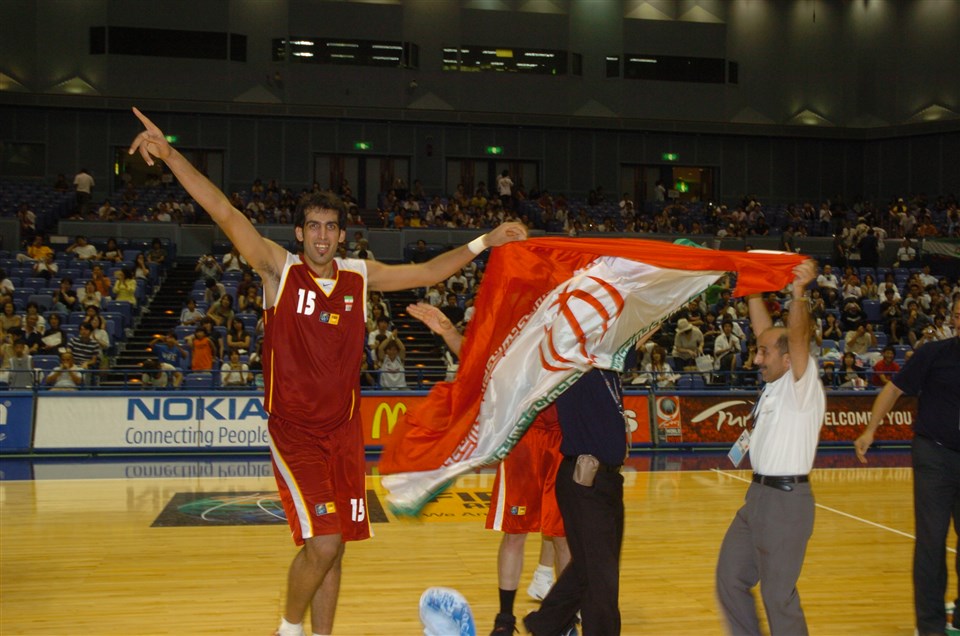
Of course, Iran relied more on being a cohesive unit with its golden generation of players than the pure star power of their center. Mohammad Samad Nikkah Bahrami was coming into his own as the leading scorer of the team. Mahdi Kamrani was the mastermind point guard who controlled the game. Round that up with shooters like Aidin Nikkah Bahrami and Hamed Afagh and now you have arguably one of the best teams in Asia Cup history.
Jordan
If it wasn’t apparent from the two examples above, taking a look at Jordan’s 2011 squad should drive the point home that FIBA Asia Cup contenders need an all-around roster as much as star power to get to that final game.
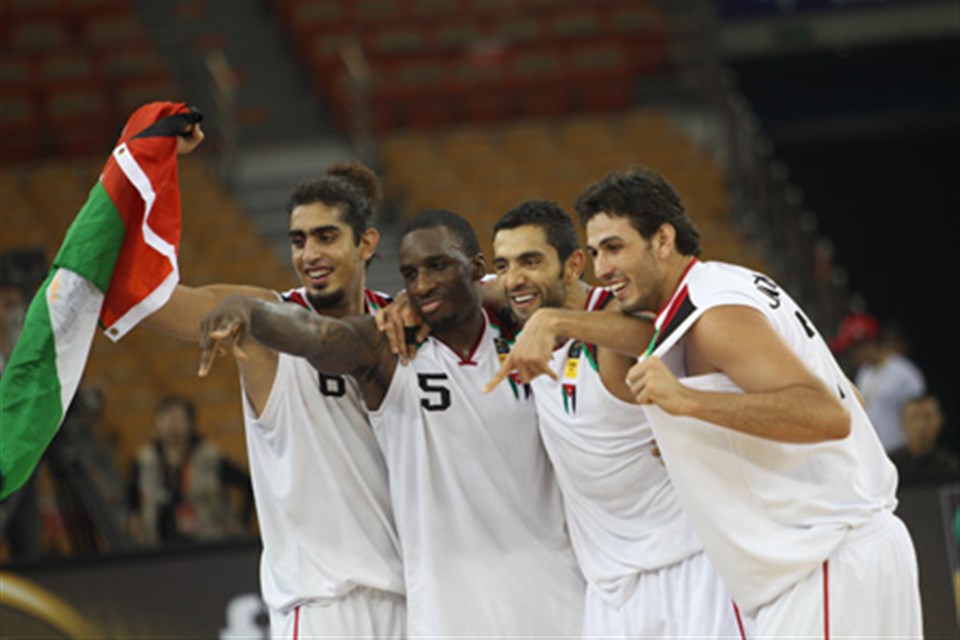
Rashiem Wright still commanded as much attention as ever in his fourth Asia Cup appearance. In 2011, he was ranked second among all scorers with 19.2 points per game. However, it wouldn’t be right to credit Wright alone for Jordan making it to the Finals.
Jordan had built on their core over the years and they were now all just coming together to form this strong team. Big point guard Sam Daghlas was already recognized as one of the best players in Asia, regardless of position. Zaid Abbas and Islam Abbaas both made important contributions to the super-sized team.
The Road to the Championship Game
Lebanon
The road to the Finals for the Cedars in 2001 was tough from the start. It took 27 points from Fadi El Khatib to fend off an upset against UAE in the opening game, eventually claiming a win with the narrowest margin possible 70-69.
They were blown out immediately in the next contest by Korea and found themselves in a difficult Quarter-Finals setting with China, Chinese Taipei, and Japan. Lebanon were pushed to the wall after another loss - this time to China - before they turned things around.
From there, Lebanon beat Chinese Taipei (who finished fourth in 1999), Japan (who were only four years removed from finishing second), and Korea (Runners up in 1999). The win over Korea was satisfying for Lebanon in particular for how close the game was (75-72) and how it was an act of sweet revenge for their early Group Phase loss. Rony Fahed took over with 23 points in this monumental win that placed the team in their first-ever Asia Cup Final.
Iran
Iran were mostly in control of their run to the Final in 2007. For most of the part, they were able to manage the minutes played by their stars to keep them fresh for a deep run as well.
Though their foes managed to keep things close, Iran remained undefeated until a crushing 82-60 loss to Lebanon in the final game of the Quarter-Finals. This gave them a favorable matchup against Kazakhstan in the Semi-Finals before advancing to face Lebanon for a second time in their first-ever Asia Cup Final.
Jordan
Sam Daghlas himself admitted that the 2011 run to the championship game was weird. They knew they had the potential to win it all, as evident by their third-place finish in 2009. But in the first few days of the competition, they were just not playing up to their standards.
After taking three losses in six days to Japan, the Philippines, and China, Jordan barely squeezed their way into the Quarter-Finals.
There they would have to face the two-time defending champions, Iran. Not only Iran were on a 17-game winning streak going back to their 2007 championship run, but they had also beaten Jordan in the 2009 Semi-Finals as well.
Against all odds, Jordan flipped the script and broke away in the fouth quarter to upset the heavy favorites with a masterful game from Daghlas. Jordan rode that moment to get past the Semi-Finals and set up a championship game against China.
The Result
In the 2001 championship game, Lebanon could not match the size of the Great Wall of China, a frontcourt that featured Yao, Menke Bateer, and Wang Zhizhi. They trailed by 22 at the half and lost 97-63.
Iran led for most of the title game in 2007 against Lebanon, but it was tight from start to finish. Hamed Haddadi announced his arrival as a superstar with 31 points and 10 rebounds in a 74-69 win.
It could not have been a more closely contested title game in 2011 between Jordan and China. Jordan found themselves down by 5 points with 4 minutes to go, but a personal 8-3 run by Rashiem Wright tied things up at 69 with less than a minute left.
Unfortunately, a free-throw by Yi Jianlian meant that Jordan’s first trip to the Asia Cup Final ended in heartbreak.
The Aftereffect
Riding the strength of their core along with additional youngsters over the years, Lebanon made it to two more Asia Cup Finals. They were the only team in that decade to make it to the Semi-Finals in every single Asia Cup. As a result of these successful runs, Lebanon also qualified for three World Cups in this span.
However, they have never made it back to the Finals again since entering the 2010s.
Ever since winning it all in 2007, Iran have built up the strongest case among all teams as Kings of the Asia Cup in the modern era. Team Melli has won two more Asia Cups since with one third-place finish and, most recently in 2017, a finish as runners up.
Since their accession to the top, Iran have not missed any of the three FIBA Basketball World Cups. They played in the Beijing 2008 Olympics and have already qualified for the upcoming Olympics in Tokyo.
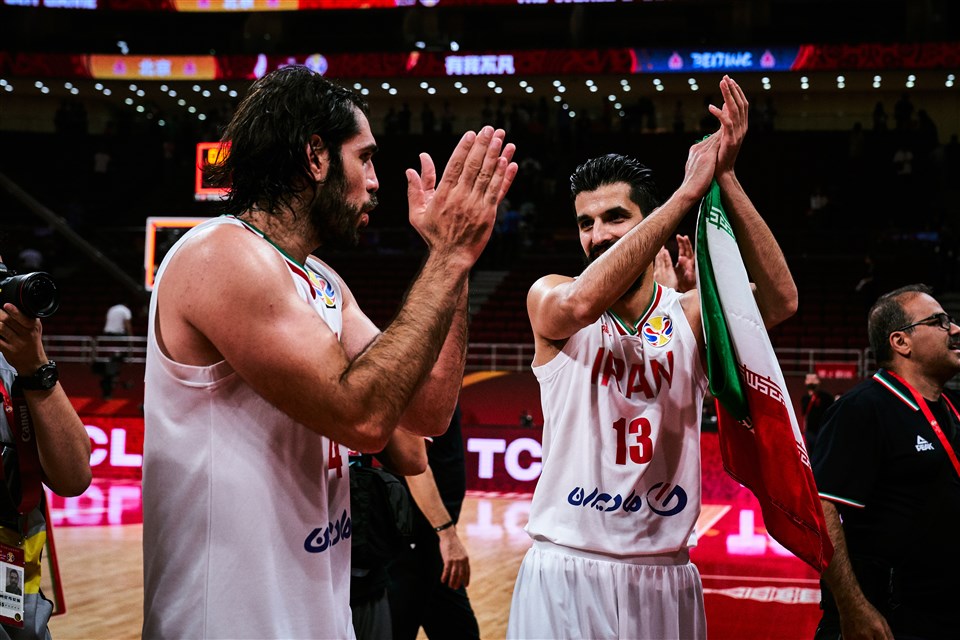
Jordan took a slight drop after making it to the Final in 2011, especially after Daghlas retired from national team duties. They haven’t made it to an Asia Cup Semi-final since. Nonetheless, Jordan are still considered one of the top teams in the Asia Cup with exciting up-and-coming talents. Most recently in 2019, they qualified for their second-ever FIBA Basketball World Cup appearance.

Which of these three Asia Cup Final debutants was your favorite?
Quiz Maker - powered by Riddle
FIBA



